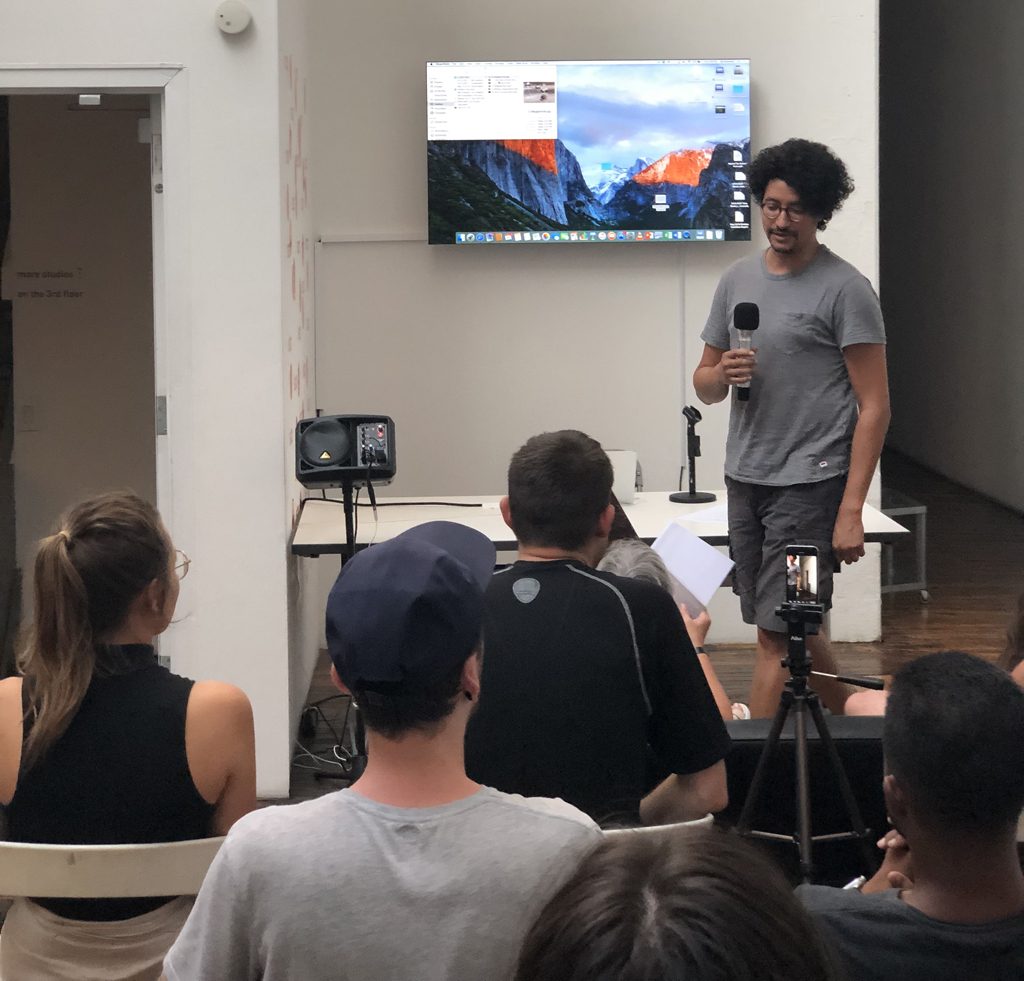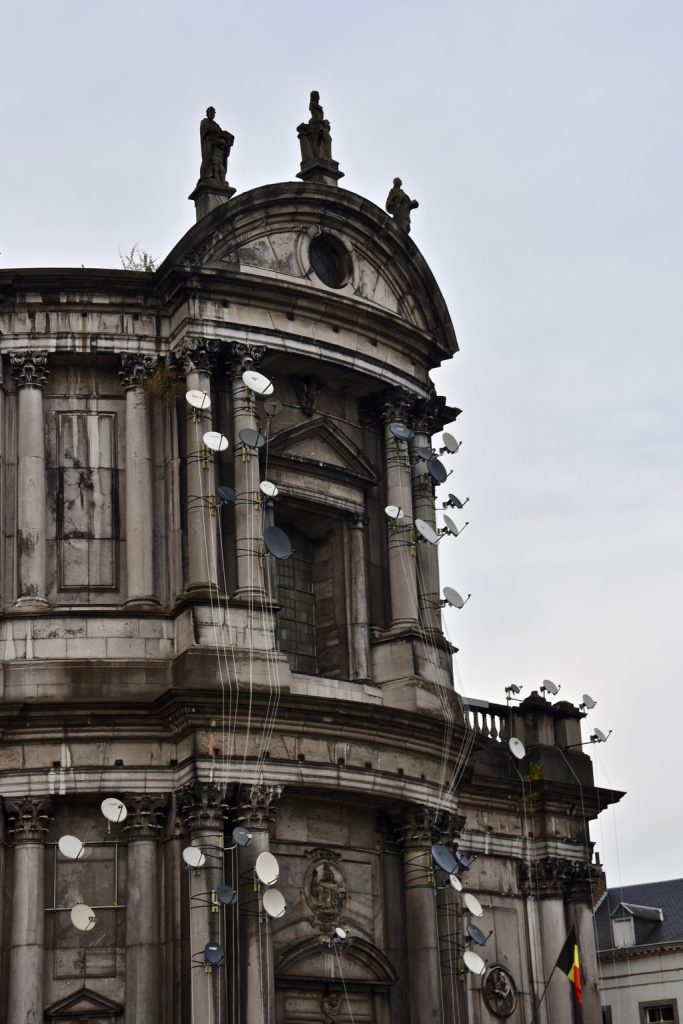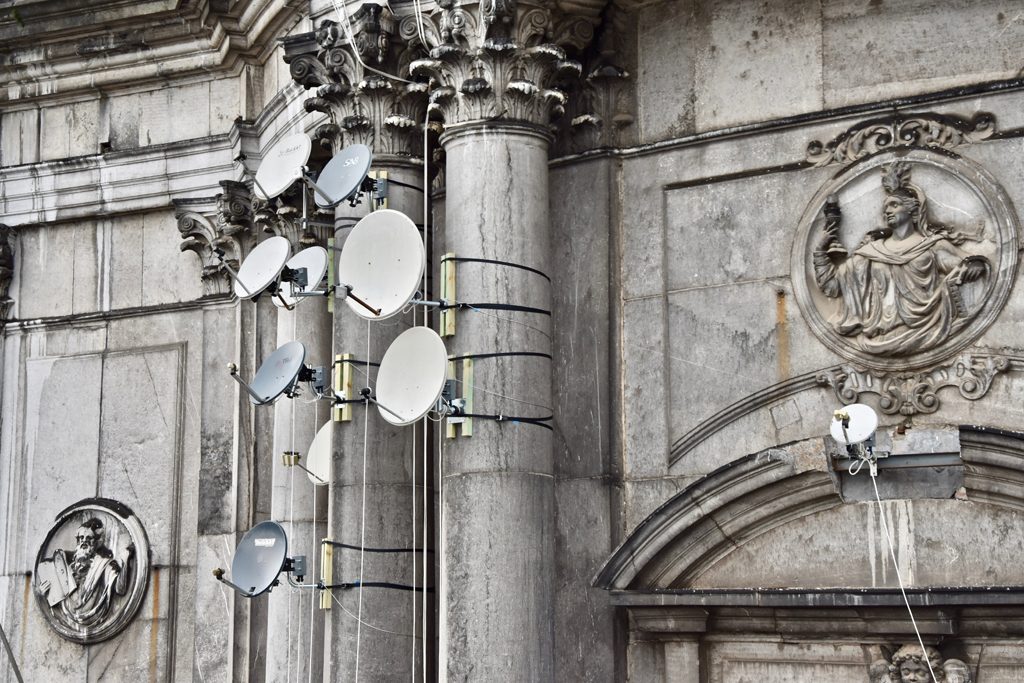Brooklyn, New York—Africa enjoys a thriving, vibrant contemporary art scene, but there is limited funding on the continent to provide local artists with residencies to make fresh, new work and create relationships that will advance their careers. Now in its third year, the Tauck Ritzau Residency is working to address this issue. The residency invites young, promising African artists to the International Studio & Curatorial Program in New York City, a light filled former factory converted to gallery and studio space for up to 35 artists from around the world at any one time and is now considered one of the leading residency programs in the world. Artists receive a private, furnished studio space; one-on-one meetings with distinguished local and international art professionals; and the opportunity to present and discuss their work with new audiences.
Nigerian artist Modupeola Fadugba (b. 1985), whose paintings and works on paper explore issues of identity representation and access, was the 2018 recipient. Kiluanji Kia Henda (b. 1978), a self-taught Angolan artist and recipient of a 2019 sculptural commission to go on view during the 1-54 Contemporary African Art Fair in London this fall, was the residency’s inaugural resident in 2017.
Born in Oujda, Morocco, Younes Baba-Ali (b. 1986) is the 2019 Tauck Ritzau resident. His fascinating, wry, and subversive art practice—encompassing technology, found objects, sound, video, and photography—reflects on topics such as diversity, migration, and consumption.

The young artist lives and works between Brussels and Casablanca and has increasingly been the subject of solo shows at venues including the well regarded Maison d’Art Actuel des Chartreux. In 2014, he was awarded the area’s Art’Contest Boghossian Prize. He has been included in numerous group exhibitions and biennials in Europe and Africa. At a recent edition of Kunstenfestivaldesarts, the hybrid arts festival in Brussels dedicated to contemporary theatre, performance, and dance, and during the 2019 edition of Afrikikk during the indoor/outdoor Kikk arts festival in Namur, Wallonia, Belgium, he installed sculptures made of satellite dishes, pictured, that comment on issues of migration “and the need to stay connected with one’s country of origin.”

The artist and his mother escaped Morocco when he was four years old. Raised in France, he studied at the École Supérieure des Arts Décoratifs in Strasbourg and earned a Master of Fine Arts at Ecole Supérieure d’Art in Aix-en-Provence. Baba-Ali says that as he grew older, after years of returning to visit his family, he rekindled his ties with his homeland and returned to Morocco to make art and be part of different joint artist collaborations. He now lives between Europe and Morocco, where he runs an art association and artist residency. His work is appreciated by critics and curators active in the African art community, and in 2012 he won the prestigious Léopold Sédar Senghor prize during the 10th edition of Dak’Art, the biennial of contemporary African Art in Dakar, Senegal.
His site-specific, multidisciplinary, and communal art often unfolds in the public streets sphere of North Africa, far removed from carefully curated white cubes or the Occidental art world.

A recent work, Carroussa Sonore Short Circuits, is based on a traditional wooden cart, or caroussa, used in the city streets of Morocco for selling compact discs featuring Quran recitals. Baba-Ali instead used the cart to play sound art and various musical compositions, reimagining it as “a tool of awareness to listening.” Another work consisted of a megaphone broadcasting in Morse code the Muslim call to prayer five times a day; and yet another was comprised of black plastic bags hanging from the branches of an orange tree that raise questions about the ecological situation and social disparity in Morocco.
Baba-Ali says his residency in New York City was “fascinating,” especially as he puts it, “how people can afford a city that gives and takes a lot.” A sharp and curious observer, he says that he discovered in Manhattan’s Chinatown an underground storage economy, literally, of cans and bottles, where “everybody is looking for a small object.” His art works often begin with looking and exploration, and he says that because of his time at ISCP he is now in the early stages of contemplating a new work that will consider themes of micro-entrepreneurialism and street survival.
#culturematters #iscp
Photography courtesy of the artist and International Studio & Curatorial Program.